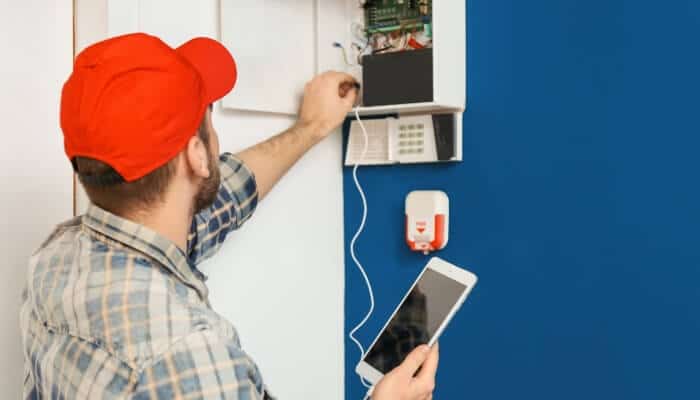Commercial Kitchen Hood Inspection in Clayton NC
The consequences of a malfunctioning fire suppression hood can be devastating. It goes without saying what a nightmare it would be if a kitchen fire were to get out of hand in your establishment. That's why regular kitchen suppression system inspections are critically important.
With Safeguard on your side, you can rest assured that your hood fire suppression system is in good working order and ready to swiftly handle any accidental fires that may occur. Our loyal and satisfied clients will attest to the fact that we never take shortcuts in our inspections. Each component is checked thoroughly since our goal is to keep you safe rather than simply checking items off a list.
What Happens During a Fire Suppression System Inspection?
During an inspection, your dedicated technician will examine the entire system, including the exhaust hood, ductwork, and associated components, looking for signs of damage or degradation. We will also test the system to make sure it works correctly and that all parts are in good working order. With a properly maintained and inspected fire suppression system in place, kitchen owners can have peace of mind knowing that they're doing everything they can to keep their customers and employees safe.

Kitchen Fire Suppression System Repair in Clayton NC
Just like any other piece of safety equipment, your fire suppression system will require periodic maintenance or repairs. Whether you notice any minor issues with your system during routine operations, or our techs notice problems during an inspection, you can count on Safeguard to resolve the issue thoroughly and quickly. Common problems that may require kitchen fire suppression system repair include:
- worn-out nozzles
- clogged piping
- malfunctioning detection devices
- leaky valves
Don't wait until small problems become catastrophes! If you notice anything unusual about your fire suppression system, call Safeguard right away. We'll diagnose the issue and get it solved before you know it. We offer sales & installation for kitchen fire suppression systems as well.
What to Do If Your System Activates
Fire suppression systems for kitchens work by detecting heat and smoke from a fire. When activated, they release a chemical fire suppressant to extinguish the flames. The suppression system covers the entire cooking area including stovetops, fryers, and grills. The chemical agent used in the suppression system is effective on both grease and electrical fires. Messy? Sure, but it's better than the property damage and loss of life that can occur without it!
Call Safeguard at 984-226-4879 right away in the event that your system is discharged. We're available 24/7 for emergencies of this type. We'll come out and recharge your system to keep you safe, and to give you tips on how to clean up!
Commercial Kitchen Fire Inspection FAQs
Resetting a kitchen fire sprinkler system after activation can take varying amounts of time depending on the system's design, the cause of activation, and the extent of water discharge. Once the fire has been extinguished and the source of heat or smoke is eliminated, a technician may need to manually reset the system, check for any damage, and ensure that it's ready for operation. This process can take several hours to a day, but it's important to allow enough time for a thorough inspection and reset to ensure the system's proper functionality and readiness for any future emergencies.
To prepare for a commercial kitchen fire inspection, take the following steps:
1. Clean all cooking equipment thoroughly
2. Ensure hood systems and filters are free of grease buildup
3. Check that fire extinguishers are properly charged and accessible
4. Verify that fire suppression systems are serviced and up-to-date
5. Clear all exit paths and emergency exits
6. Test emergency lighting and exit signs
7. Organize and update all required documentation and logs
8. Ensure staff are trained in fire safety procedures
9. Address any previous violations or recommendations
10. Schedule regular maintenance of all fire safety equipment
11. Remove any unnecessary combustible materials from the kitchen area
These preparations will help ensure compliance and safety during your inspection.